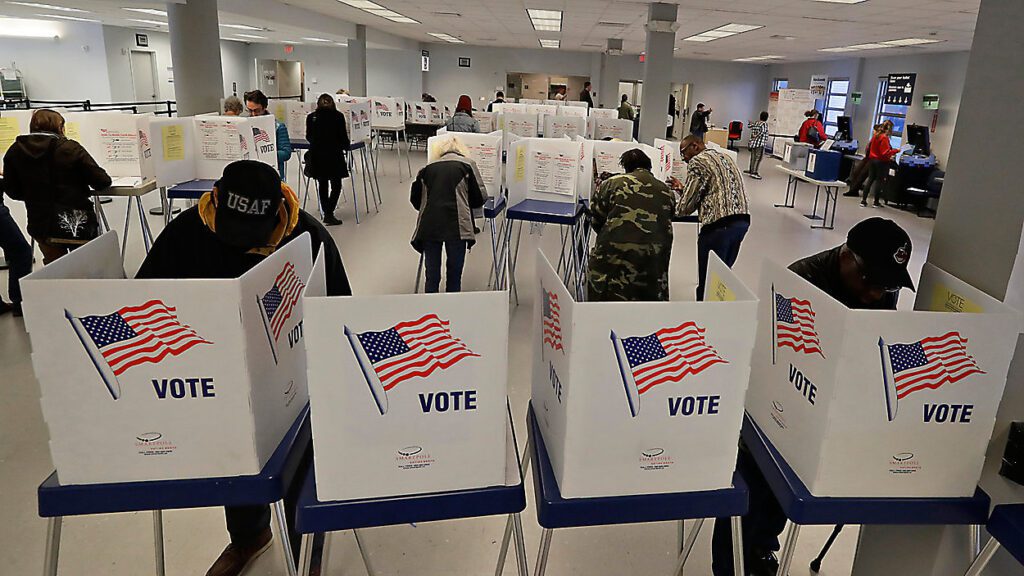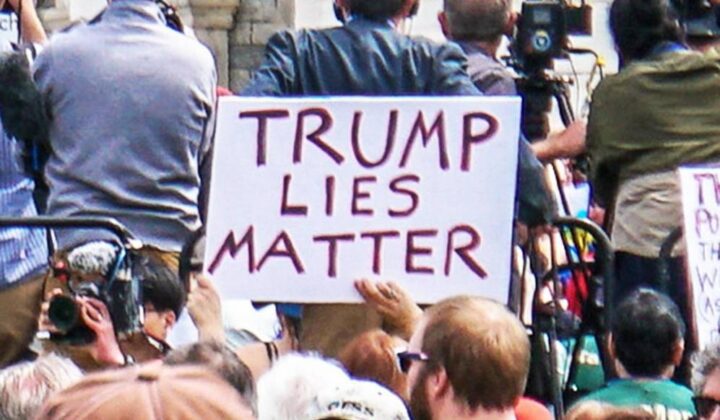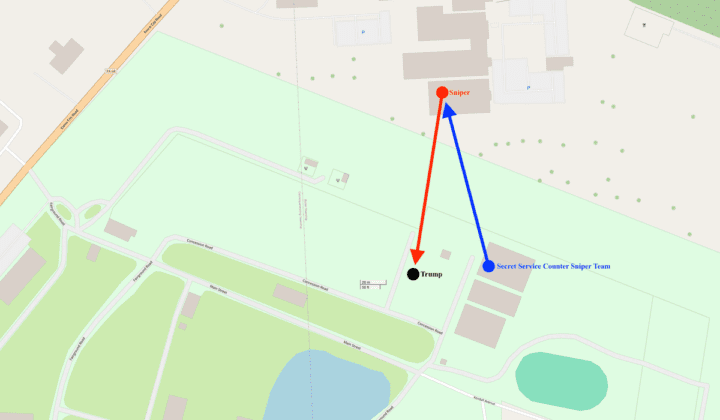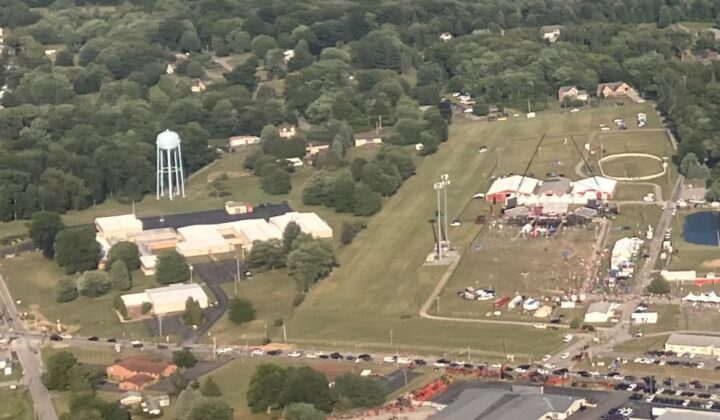Here’s how some states are trying to fix it

It’s a presidential election year, and poll after poll suggests that Americans did not want the matchup we’re facing in November between President Joe Biden and Donald Trump.
It begs the question: If this rematch between two historically unpopular candidates is the last thing Americans say they wanted, how did we end up here? Well, it’s partly due to a complicated mix of factors involving party politics, money, and historical custom with regard to incumbency. But ultimately, it was primary voters who chose Biden and Trump.
Ah, primary elections. So important, and yet so poorly attended—and this year, so pointless in terms of the presidential race for many states. In this issue, we’ll explore some of the ways states are tweaking the primary system to potentially improve participation and outcomes. —Melissa Amour, Managing Editor

A Uniquely Horrible Choice
If there’s a consistent area of agreement across party lines these days, it’s that the US primary system is broken. Without the enticement of a presidential choice, voters tend to tune out altogether. This week’s Pennsylvania primary is a good example—bringing just 29 percent of registered voters to the polls.
Despite historically high voter turnout in 2020, only 10 percent of eligible American voters nationwide cast ballots in the primary elections that effectively decided the winners of 83 percent of Congressional seats. “Primary elections are by far the most visible way we have turned power over to our most partisan, polarized citizens,” says Todd Washburn, who teaches a course on the polarization of American politics at the Harvard Extension School.
The result? “American politics has become like a bitter sports rivalry, in which the parties hang together mainly out of sheer hatred of the other team, rather than a shared sense of purpose,” say Alan Abramowitz and Steven Webster of Emory University. So how can we reform the primary election system to make our government more representative and collaborative again? Let’s take a look.
What You Should Know
Primary elections vary widely across states. There are currently seven different types of primary elections, including closed primaries in which only voters registered with a political party are able to participate. In those states, independent or unaffiliated voters are completely shut out of the process. A few states, including Nevada, Pennsylvania, and Oregon, are actively trying to remedy that.
“I don’t think we’re going to create a better future and realize the potential of our state unless we are fully including every single eligible voter in elections.” —Michael Calcagno, chair of the All Oregon Votes Committee
Other states are trying to restrict open primary systems—where all voters can participate and even vote across party lines. Campaigns to close primaries are active in states like Colorado, Tennessee, and Texas, and have been successful in Louisiana.
“[The open] primary system prevents Louisiana’s political parties from selecting their preferred candidates. Each major party, Democratic and Republican, deserves an opportunity to choose its nominee ahead of the general election. Closed primaries afford the fairest system for voters and ensure that both major parties have representation on the final ballot.” —Clay Higgins, US Representative from Louisiana
More and more, policies attempting to reform the primary system are falling along partisan lines. That trend mostly holds up with another potential primary election reform—ranked-choice voting (RCV). RCV has been adopted in states like Maine and Alaska with the goal of making primaries more competitive.
“[RCV] is basically a winnowing process. While recognizing the candidate preferred by most voters—not simply by Democratic or Republican voters—it also tests how deep that preference goes. And eliminates those that are not strongly preferred by most voters. No more two-person, ‘lesser of two evils’ choices. And it has the potential to advantage candidates who are more centrist as well, since they would not be eliminated in a sharply partisan primary election where only the purest party identifiers tend to vote.” —R. Bruce Anderson, chair of American History, Government, and Civics at Florida Southern College
But while some states and localities are trying to adopt RCV, others are preemptively banning it. After it was widely blamed by Republicans for helping to defeat Sarah Palin and Kelly Tshibaka in their respective races for the US House and Senate in 2022, it has been banned statewide in Kentucky, South Dakota, and Idaho, among other states, through GOP-led measures.
How We Got Here
If primaries are so problematic that even the solutions are divisive, how did we end up with them in the first place? Ironically, they came about as an effort to reform the previous nominating system. Before direct primary elections were introduced, parties were more like private clubs that selected candidates through member conventions or infamous “smoke-filled rooms.” Progressive reformers sought to end that system in the early 20th century.
“At a time when candidates were selected in back-room deals, by party bosses, without any public involvement, a time when urban political machines, like Tammany Hall in New York, selected candidates who would do their bidding once in office, reformers (progressives) decided to circumvent the smoke-filled room with an open party vetting system that brought average voters into the selection process.” —Clay Jenkinson, host of “The Thomas Jefferson Hour” podcast
But parties seeking electoral advantages found ways to secure them over time.
“[Through] decades of sophisticated, computer-enabled gerrymandering, you get extreme candidates who run in safe districts where the only threat to them is a primary candidate who is even more extreme.” —Fareed Zakaria, foreign affairs columnist at The Washington Post
With a record 49 percent of Americans now defining themselves as politically independent—a number equivalent to the two major parties combined—the political and fundraising power of both parties is being threatened. Neither is particularly inclined to reform a system in a way that could further damage its electoral prospects.
“Unfortunately, voters are stuck with the political whims of lawmakers loyal, first and foremost, to their party.” —Shawn Griffiths, election reform expert at Independent Voter News
But while the two major parties play a big role in primary election dysfunction, that doesn’t change the fact that low voter turnout remains a driving factor behind widespread discontent as well.
“A small minority of Americans decide the significant majority of our elections in partisan primaries that disenfranchise voters, distort representation, and fuel extremism––on both the left and, most acutely (at present), the right.” —Nick Troiano, executive director of Unite America
What People Are Saying
There are no easy solutions to our primary election problem.
“[Letting parties decide internally] makes nominating too exclusive and potentially susceptible to corruption, given that most nominees will face no other general election challenge in a two-party system that is highly sorted by geography. [Letting anybody compete] creates a problem of cognitive overload, in which voters will be asked to consider way too many candidates, without clear party endorsements. Under such nonpartisan conditions, voters are more likely to choose based on name recognition (benefiting well-financed candidates and/or celebrities), or more discouragingly, ethnic in-group favoritism.” —Lee Drutman, election reform expert and senior fellow at the New America Foundation
While reforms like open primaries and ranked-choice voting have their supporters and detractors, both political sides recognize a need for change. Those on the Left point to the enduring primacy of the two party system.
“America has a two-party political system that encourages candidates to appeal, first and foremost, to members of their own party—while locking out independents, third parties, and other sources of competition.” —Alex Tausanovitch, former senior fellow at the Center for American Progress
And some on the Right see primaries as the main cause of the America’s culture wars.
“Instead of spinning your wheels trying to put out a myriad of culture war fires, it would make sense to attack the root cause of the problem—the method of selecting the people who orchestrate the divisiveness and chaos.” —Jim Jones, former Republican attorney general of Idaho and justice on the Idaho Supreme Court
But no reform will work without voter participation. It’s still up to Americans to vote for the people and policies that represent them best.
“Increasing participation in voting will only strengthen our electoral system, restoring trust in the political process and ensuring that the men and women who win office have the backing of a majority of citizens.” —Santa Fe New Mexican editorial board
- Democracy Dies in Primaries —RealClearPolitics
- There’s Hope for American Democracy. The New Hampshire Primary Shows Us Why —CNN
- Majority of Alaskans Voted Across Party Lines in ’22 Open RCV Primary, Study Says —Alaska Public Media
- Nonpartisan Primaries Would Ease U.S. Polarization, Advocates Say —NPR
- America’s Winner-Take-All Electoral System Is Tearing the Country Apart —The UnPopulist

- SCOTUS decides: Trump Immunity Claim in Election Interference Case Heard by Supreme Court —NBC News
- Biden signs: Biden Signs TikTok Ban Bill Into Law. Here’s What Happens Next —The New York Times
- Arizona indicts: Meadows, Giuliani, and Other Trump Allies Charged in Arizona 2020 Election Probe —The Washington Post
- Food for thought: Are Americans Turning Against Representative Democracy Along With Commitment to Democratic Values? —The UnPopulist
- Give this a read: Healthy Democracies Reject the Mob —The Bulwark

- China: China Warns Blinken US Must Choose Between ‘Cooperation or Confrontation’ —Financial Times
- Haiti: Ariel Henry Resigns as Prime Minister of Haiti, Paving the Way for a New Government to Take Power —AP News
- Russia: Russia Says It May Downgrade Ties with US if Its Assets Are Confiscated —Reuters
- Ukraine: Biden Signs Foreign Aid Bill Providing Crucial Military Assistance to Ukraine, Others —CNN Politics
- Yemen: Ship Attacked off Coast of Yemen as Houthi Rebel Campaign Appears Reinvigorated —The Times of Israel

Hey Topline readers, you remember the drill. We want to hear your reactions to today’s stories. We’ll include some of your replies in this space in our next issue of The Topline. Click here to share your take, and don’t forget to include your name and state. We’re looking forward to hearing from you!






